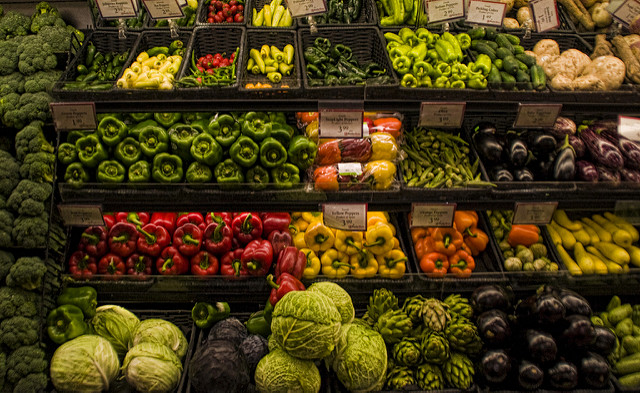Why Everyone Should be Talking About Omega -3
And not just vegans or vegetarians either.
We all should be a bit more interested in this polyunsaturated fatty acid.
Here in Denmark, it is said that the ratio of Omega -3 to Omega -6 is on average 1 : 24.
Do you know what that ratio should look like?
Healthcare professions and researchers recommend a ratio of 1:4(6)

Photo Credit: Matt Wharton
So, as you can see, we need to work on our aim 🎯 🎯
But wait why? What is Omega-3 and Omega-6? Why is the average person so far off the mark? And why is it at all important that we talk about these fatty acids at all?
Good questions! - Now lets answer them!
Omega -3 (n-3) and Omega -6 (n-6) are essential fatty acids and vital to good human health. The fact that they are essential, means that we can not synthesis them and therefore need to get them through our diet.
Though there are other important fatty acids, these two are particularly important, especially to each other. This is because the same enzymes are used to break down both N-3 and N-6 for our cells to use. This means, that if there is a much higher percent of N-6 floating around then N-3, the chances that the enzymes will find an N-6 to breakdown first is also higher.
Okay, but so what, why does that matter?
Both n-3 and n-6 are synthesised into eicosanoids which regulate blood pressure and coagulation. Furthermore these omegas are involved in the stabilising of our cell membranes. A proper balance of omega-3 to omega-6 ensures that our cell membranes remain flexible, permeable and that the membrane channels, and enzyme activity remain functional.
N-3 works anti-inflammatory in these processes. It tends to make blood thinner as well as helps the arteries to dilate as well as help the immune system fight invaders. N-6 on the other hand, works in the opposite way. It tends to make the blood thicker or
platlets to coagulate, and the arteries to constrict.
Both omegas provide necessary and in some cases life-saving services.
the problem is they are simply unbalanced in relation to each other
This unbalance could (or already has) cause you problems such as: arthritis, auto-immune deficiencies, body aches, intestinal problem and acne. Inflammation can also have effects on psoriasis, ADHD and even ageing.
But how, how did we get so omega-unbalanced?
N-6 is found in abundance in oil. Canola, sunflower, peanut, soybean, olive etc. are a typical oils in a western diet. Even though we cut back on how much deep fried or fried food eat, these oils hide in many processed foods such as: cookies and cakes, nut butters, fast food, popcorn, chips, salad dressings, mayo and more. Whats more, is that livestock as well as fish are being fed unnatural diets high in n-6 which in turn finds its way into the animal products we inconspicuously consume.
N-3 is slightly less abundant. Omega -3 is found in seeds such as chia and flax and in walnuts. It is also found in fish such as mackerel, salmon and herring in the form of DHA and EPA (eicosanoids), though overfishing, farmed fishing and unnatural feed have altered and worsened the N-3 content in fish and for many reasons (including that I do not eat animal products) I suggest finding alternatives to fish and fish oils.
But if you say fish is a no-go, how do I correct this unbalance?
Eat plant-based. Not just vegan or vegetarian, but PLANT-BASED

Photo credit: Liz West
Cutting out animal products is good on many levels. If not for the environment, or for the animals, for yourself. Cutting out animal products can help reduce the intake of 'hidden' omega-6. Replace these foods with legumes, whole wheat grains as well as lots vegetables and some fruits.
Minimise if not eliminate your intake of processed foods. This includes those delicious vegan sausages and cheeses you love so much. Cut out the chips, the oreo cookies, the Mcdonalds french fries, premade dressings and sauces and excessive drizzling of oil all ovenbaked, fried or fresh.
Include at least 1 tablespoon of crushed flax seeds with a bit of water into your daily routine. I say crushed flaxseeds because they are cheaper and last longer than oil, but the oil is just as good, if not better! Flaxseeds have a great ratio of omega-3 to omega-6 and are highly recommended for all, vegan and omnivore alike!

Photo Credit: Marco Verch
If flax seeds are not your thing, than chia seeds and walnuts are also great sources of omega-3.
So if you are feeling sore, swollen or walk around with joint pain, acne or something more serious - maybe getting your omega-ratio checked is a good idea! Just a few small changes can lead to huge shifts in your wellbeing!
I leave you now with a delicious breakfast I made a while back - starring chia seeds!
Chocolate Chia in homemade Cashew yoghurt

Ciao for now, sweet steemers
💜 💜 💜
your post looks interesting
thanks